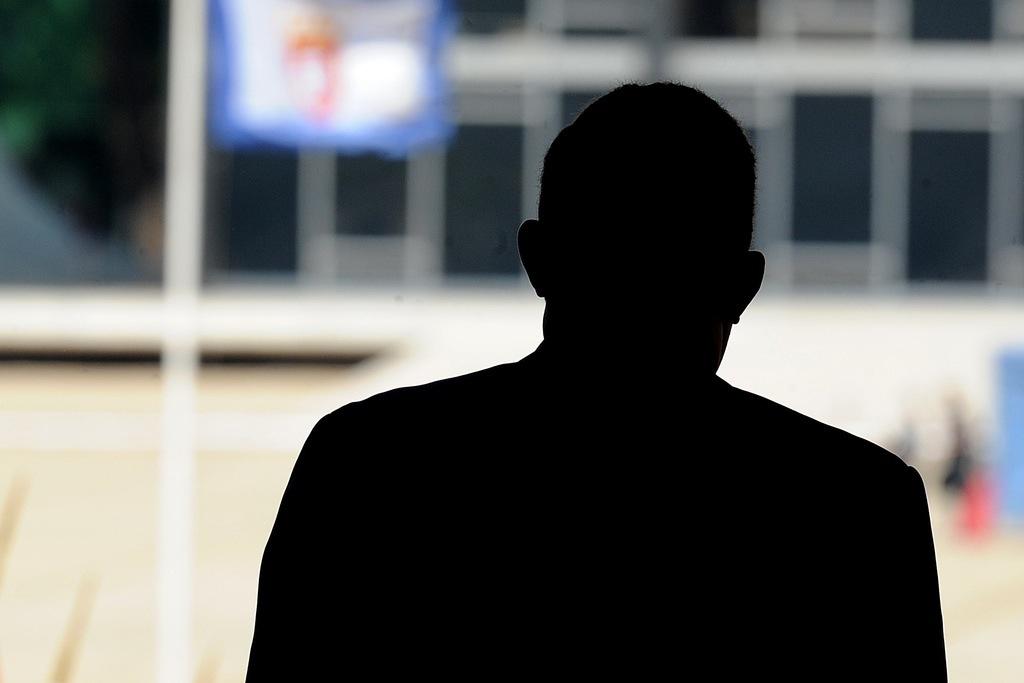Have you seen this face?
Hugo Chavez in Brazil on June 6, 2011.
Hugo Chavez's recent absence from the spotlight is a rarity for a president who is perpetually on TV, the radio and even Twitter.
But Chavez is hardly the first world leader to go missing for days at a time.
Like Chavez, other leaders have sought medical treatment out of the country, leaving their countrymen to wonder about their health — and often whether they're alive at all.
Saudi King Abdullah bin Abdel Aziz
The Saudi king was diagnosed with a herniated disc and flew to the United States last November for surgery. The 87-year-old monarch spent nearly two months in the U.S. and then headed to Morocco to convalesce. He did not return to Saudi Arabia until Feb. 23, 2011, a full three months after he departed. Crown Prince Sultan governed the kingdom in his absence.
Nigerian President Umaru Yar’Adua
Yar’Adua left Nigeria in November 2009 for Saudi Arabia to receive treatment for pericarditis, an inflammation of the lining around the heart. Even before he went to Saudi Arabia, Yar'Adua was not in good health and was known as "Baba Go Slow" for the lack of energy in his government. He was not seen or heard from for months. During his prolonged absence, unrest worsened in the oil-producing Niger Delta area and he was criticized for not handing over control to Vice President Goodluck Jonathan. He died in May 2010 from heart failure.
Palestinian leader Yasser Arafat
The leader of the Palestinian Authority fell ill in October 2004. He was visited by teams of doctors from Tunisia, Jordan and Egypt before being sent to a hospital in France. At the hospital, he lapsed into a coma and was pronounced dead on Nov. 11, 2004. The cause of death is still unknown.
Yemeni President Ali Abdullah Saleh
Yemen's President Ali Abdullah Saleh, who was injured in an attack on his palace, fled to Saudi Arabia on June 3 to receive treatment. He has not returned of been heard from since he left. Saleh left amid mass protests demanding he step down after more than three decades in power. Tensions in the capital, Sanna, boiled over when rebel tribes took up arms to fight government security forces. Saleh's presidential palace was struck by a rocket in what appeared to be an assasination attempt. Since his departure the country has been mired in a power vacuum as questions swirl over whether or not the president will ever return.
Iraqi President Jalal Talabani
Talabani traveled to the United States in August 2008 for what was described as knee surgery. But two weeks later his office revealed that he was instead recovering from heart surgery. Talabani was not seen in public for several weeks after he first traveled to the Mayo Clinic in Minnesota for treatment. The president's office said the heart problem was discovered when doctors were preparing for the knee surgery. He is still president of Iraq.
Venezuelan President Hugo Chavez
Chavez built his success through the power of personality. His public relations skills are second to none. He is playful with children, a master at conversation and, failing all else, has a loveable smile that still mesmerizes many so-called Chavistas — which makes his absence the last two weeks all the more worrying. The consensus (but completely unsubstantiated) rumor in Venezuela is that the socialist leader is suffering from prostate cancer. The official line continues to be that Chavez is convalescing following an operation to remove a pelvic abscess on June 10.
Follow Stephanie on Twitter: @stephaniegarlow
Hannah McGoldrick contributed to this story.
The story you just read is accessible and free to all because thousands of listeners and readers contribute to our nonprofit newsroom. We go deep to bring you the human-centered international reporting that you know you can trust. To do this work and to do it well, we rely on the support of our listeners. If you appreciated our coverage this year, if there was a story that made you pause or a song that moved you, would you consider making a gift to sustain our work through 2024 and beyond?
